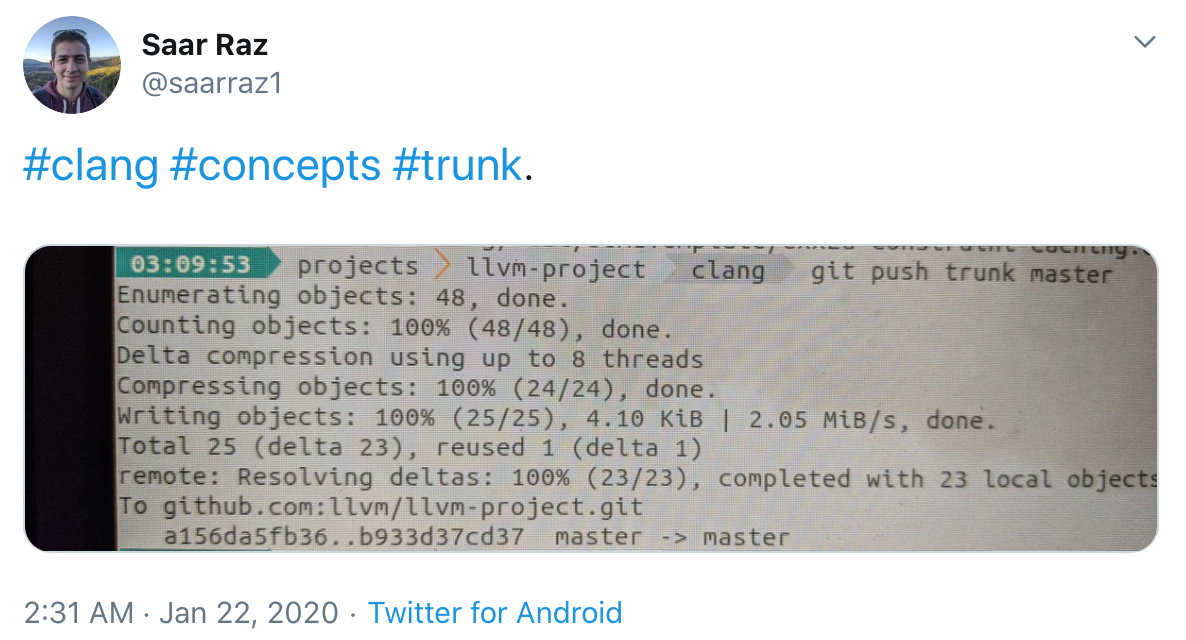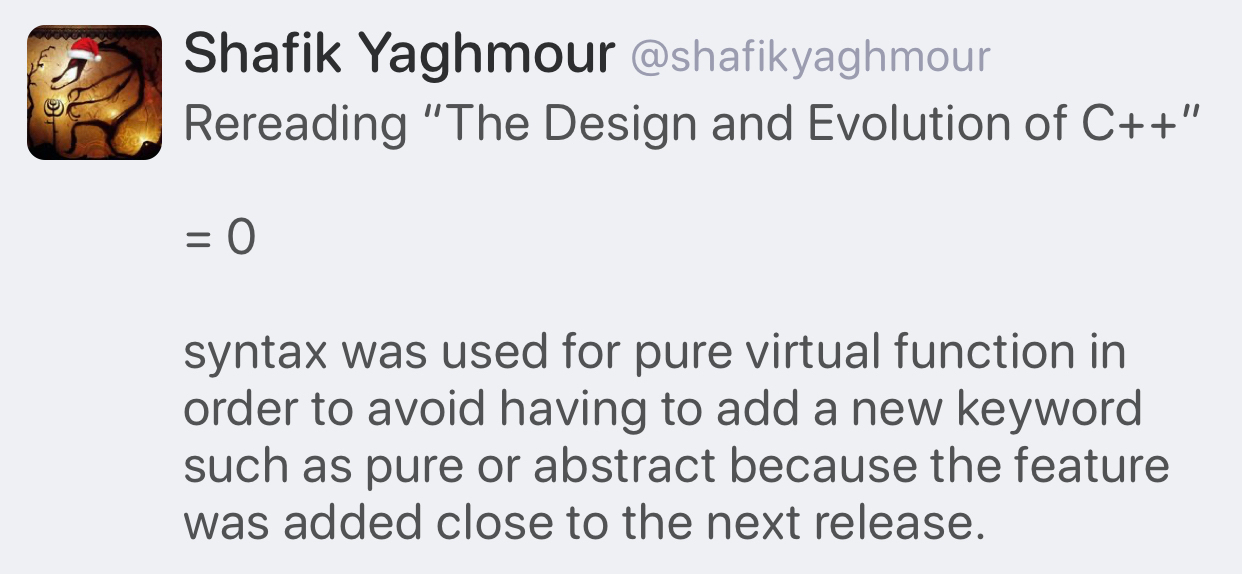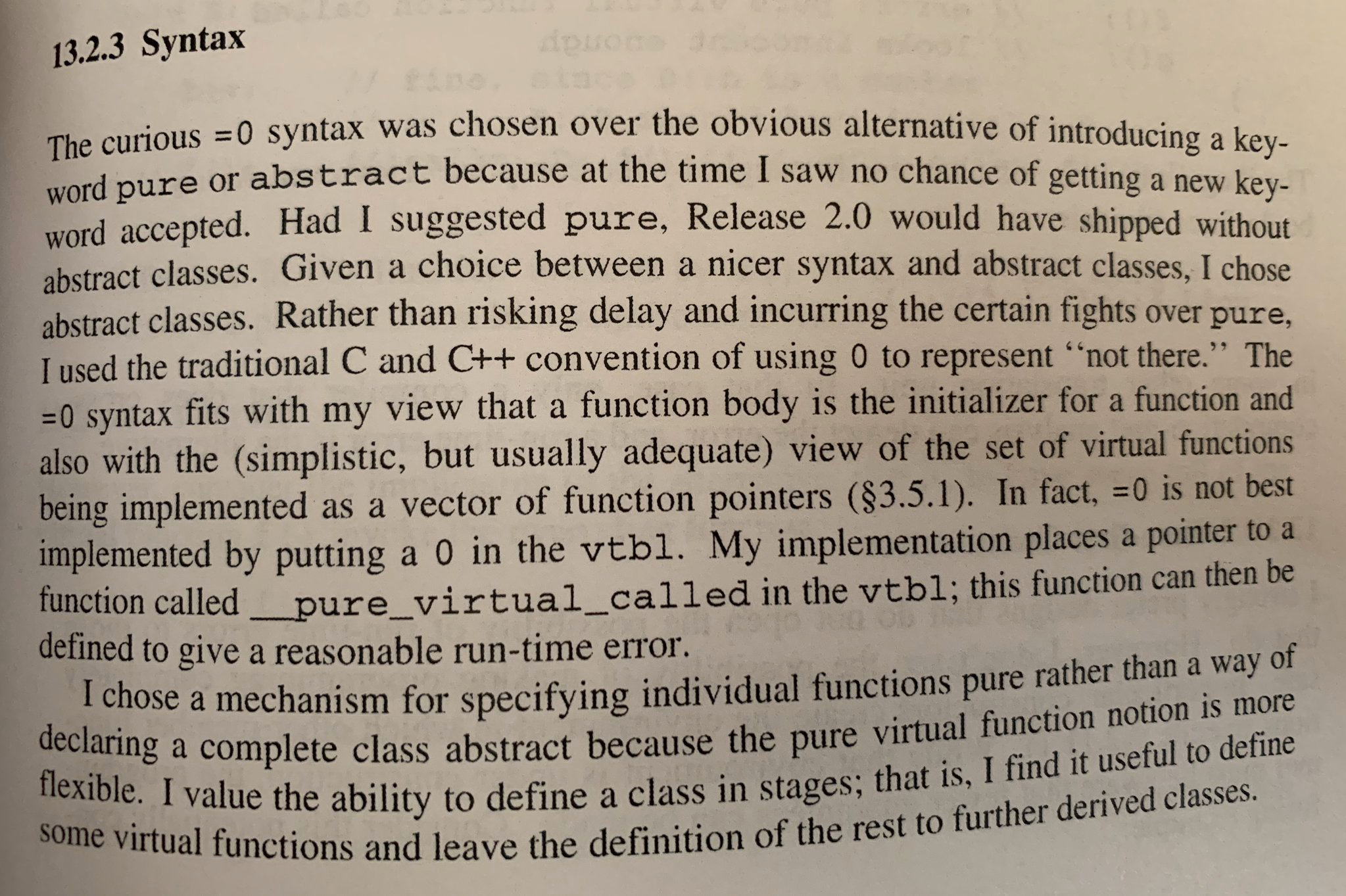Meeting 100 (27 February 2020)
Prague Trip Reports
- Bryce Lelbach et al.
- 252 attendees! 23 subgroups! 9 tracks!
- C++20 is done!
- C++23 roadmap! Standard library modules; library support for coroutines; executors; networking. Also: reflection; pattern matching; contracts.
- Herb Sutter
- CppCast with Hana Dusíková
C++20 is here
Bjarne Stroustrup on C++20’s significance
Quotes:
- 30 years of C++ standardization.
- 40 years of C++.
- C++20 is the 6th standard, the 3rd major standard; by “major” I mean “changes the way people think.”
- This is something like the 75th meeting; I have been at about 70 of those.
Excited about C++20
I work in a large codebase that was originally written in C and was compiled with C++03 just a few years ago. Since then, we have upgraded through C++11, C++14 and are now using C++17. So far, my experience is that every upgrade has been almost exclusively a positive experience, and each version has made it easier to write safe and expressive code.
Concepts pushed to Clang master

[C++ coroutines] Initial implementation pushed to GCC master
This is not enabled by default (even for -std=c++2a), it needs -fcoroutines
How to keep up with C++ news
- Reddit
- blog posts
- code reviews
- follow the C++ tag on StackOverflow
- follow C++ conference talks
- cppreference.com
- books
- read proposals
- join the committee!
- don’t…
CppCast Ep. 233: Large Scale C++ with John Lakos
There’s a misunderstanding (of contracts in the C++ committee – GD) that’s not easy to appreciate if you’re not a real day-to-day software engineer. That is what derailed contracts. I will fix it. I promise you, I will fix it.
Why does this fill me with dread?
Follow-up: Aggregates
From CppReference: An aggregate is one of the following types:
- array type
- class type (typically,
structorunion), that has- no private or protected direct (since C++17) non-static data members
- no user-declared constructors (until C++11)
- no user-provided constructors (explicitly defaulted or deleted constructors are allowed) (since C++11) (until C++17)
- no user-provided, inherited, or explicit constructors (explicitly defaulted or deleted constructors are allowed) (since C++17) (until C++20)
- no user-declared or inherited constructors (since C++20)
- no virtual, private, or protected (since C++17) base classes
- no virtual member functions
- no default member initializers (since C++11) (until C++14)
Twitter: Pure virtual function syntax


Move, simply
The state of
aafter it has been moved from is the same as the state ofaafter any other non-const operation. Move is just another non-const function that might (or might not) change the value of the source object.
In the absence of other information, do not do anything to an object on which
std::movehas been called, except assignment operator and destructor.
Rust is better than C++20, by David Sankel
David Sankel, “We Have C++20” bloopers:
(C++) is like Rust, but worse.
Operator:
What’s better about Rust?
David Sankel:
I don’t know, I haven’t actually used Rust.
Twitter: Katherine Johnson
